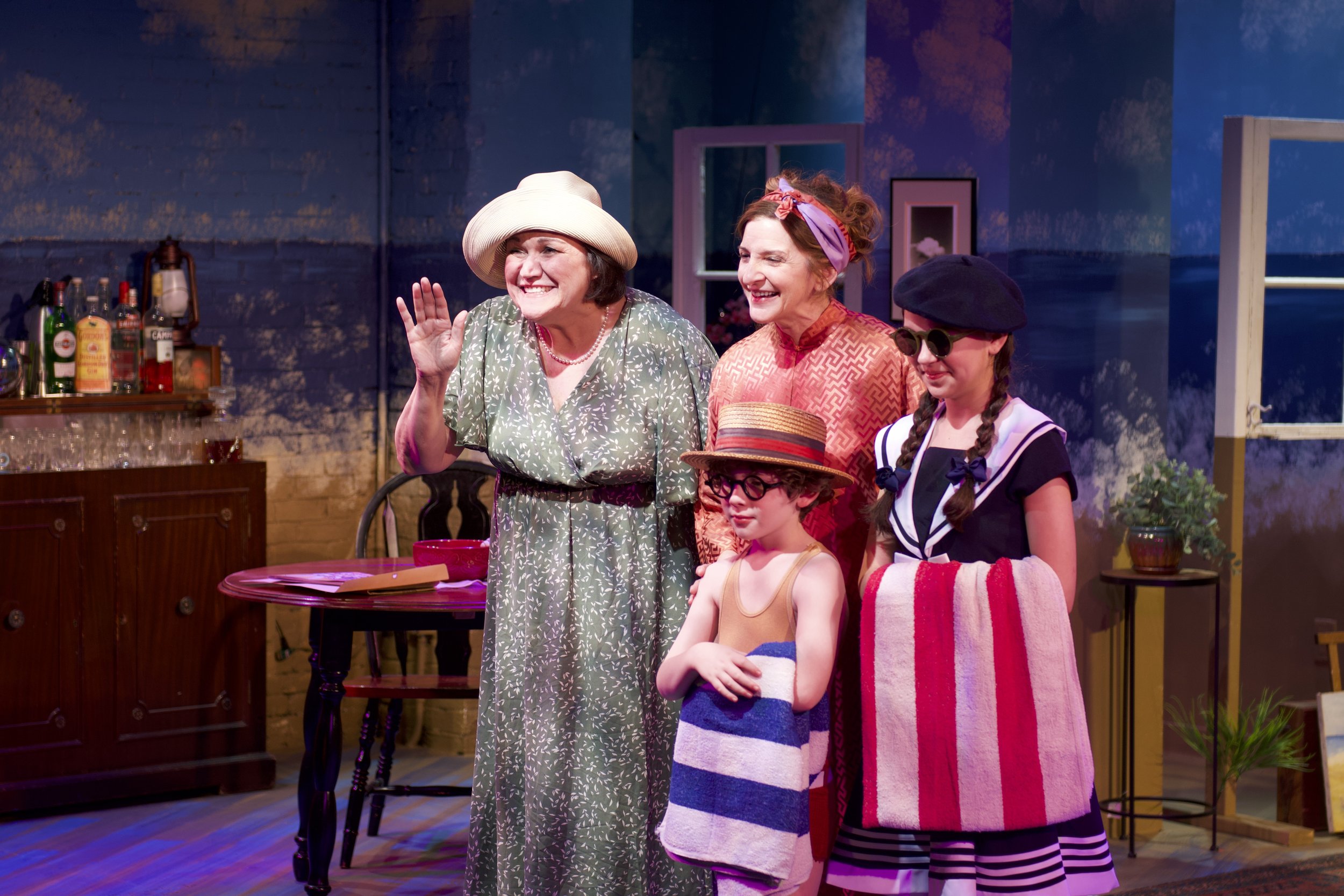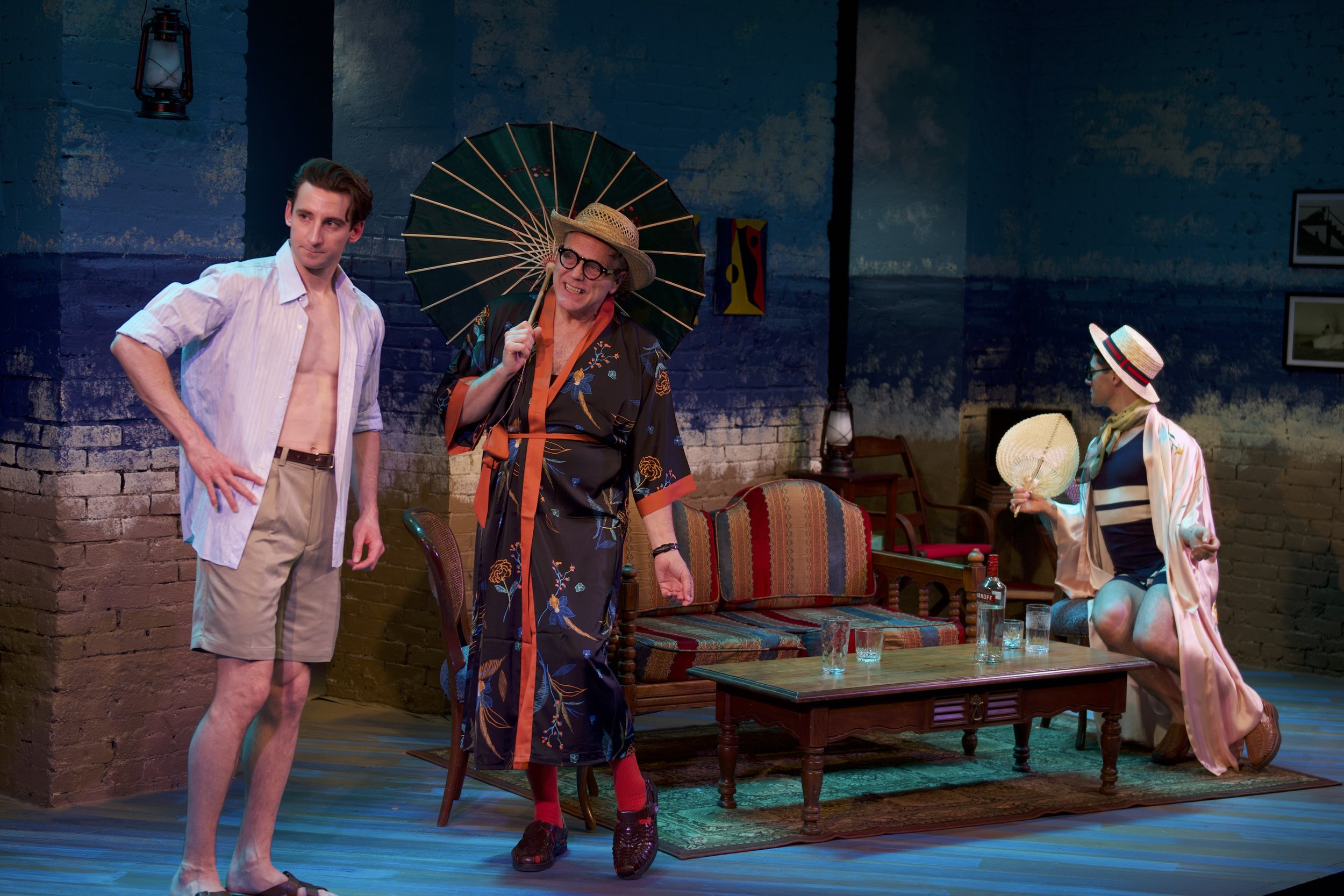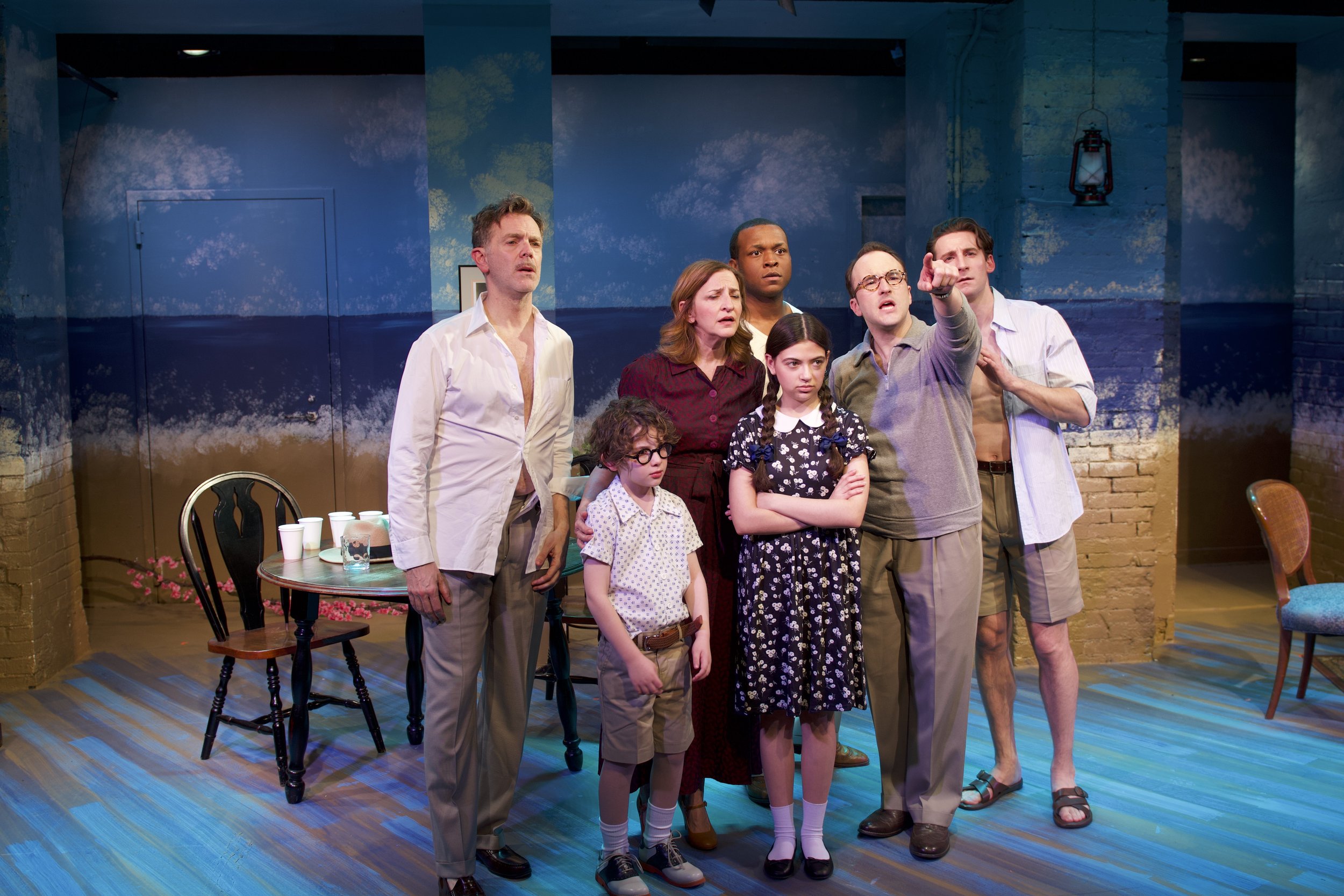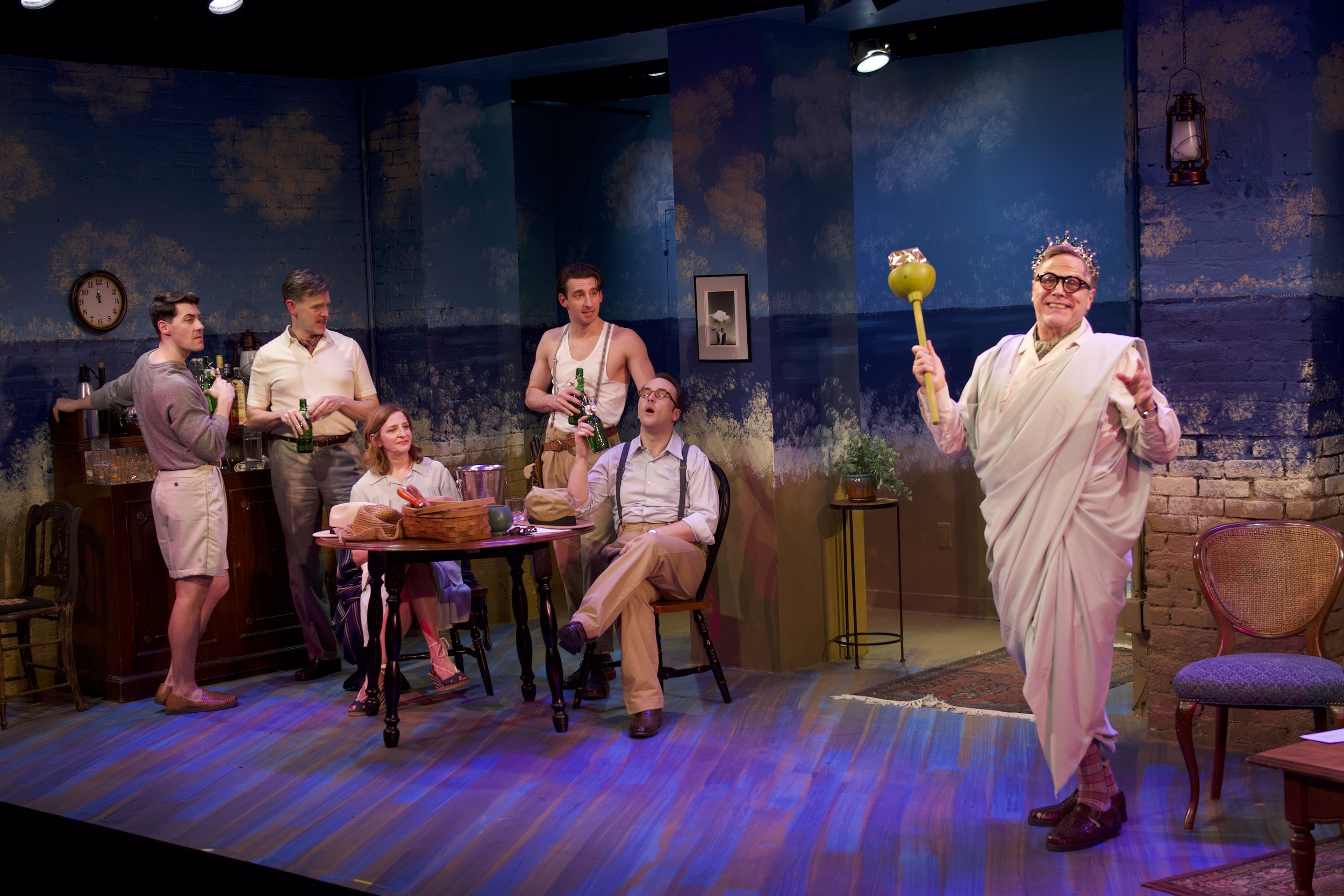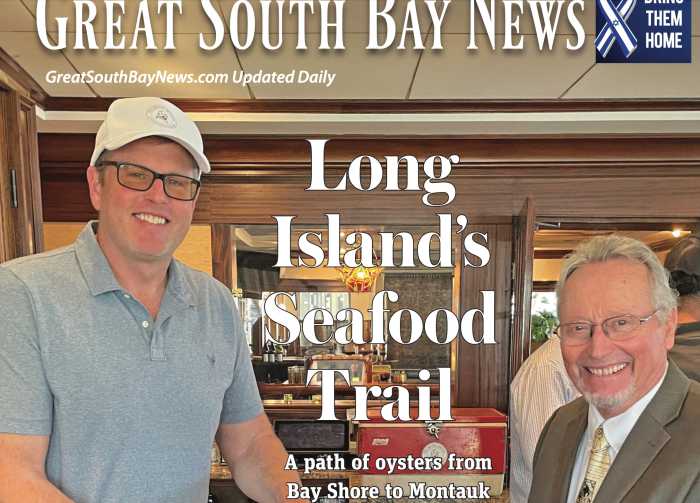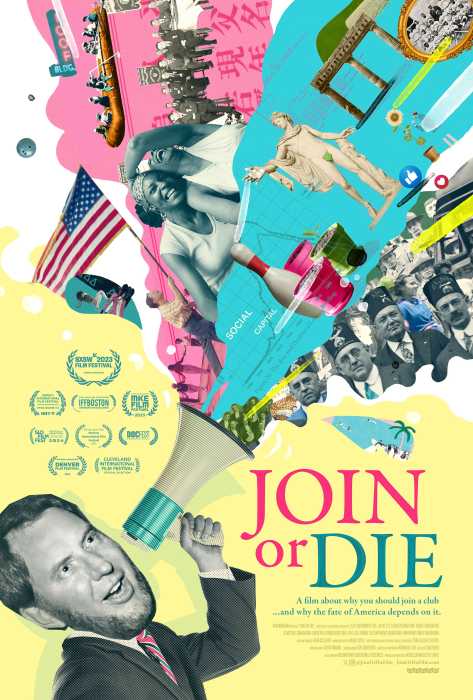By Shoshanna McCollum • Photos by Photos by Richard Rivera
Pride House premiered at Siggy at the Flea theatre on January 18 and is becoming a play that people are talking about. Set on the shores of Cherry Grove, Fire Island as the Hurricane of 1938 is swiftly approaching, it is rich subject matter. We took some time to talk to Chris Weikel about his latest play, the Other Side of Silence, and how his own life experiences fit into the picture.
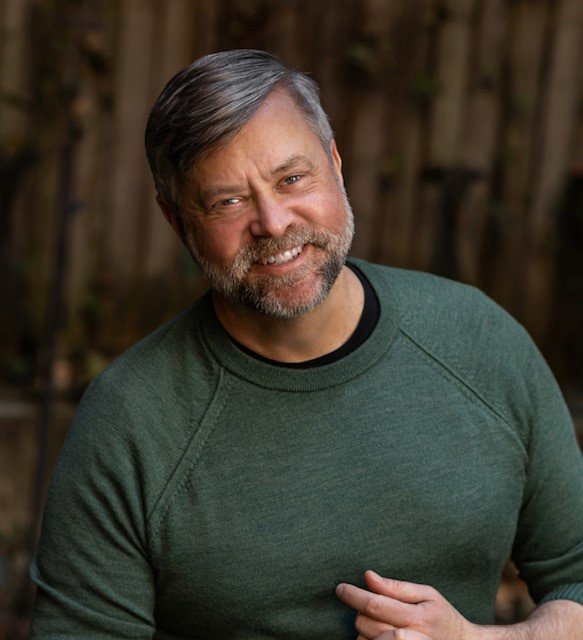
Fire Island News (FIN): What was the impetus for you to write the play Pride House?
Chris Weikel (CW): Well, I’ve always been a beach person and I have loved Fire Island, just personally for years and years, just to visit on vacation. I try to make trips out there a couple times a summer. Last year I actually took a place out there for the entire summer for the first time. As a queer person, it’s such a unique space. It’s the first time I’d ever been in sort of a majority minority space, apart from maybe gay Pride in New York, but this was a whole town. Fire Island became a place where suddenly my shoulders relaxed in a way that I had never realized was possible. With Cherry Grove in particular, the culture seemed so entrenched, and I wondered how did this happen? So, I picked up Esther Newton’s wonderful, wonderful book about the history of Cherry Grove [Cherry Grove, Fire Island: Sixty Years in America’s First Gay and Lesbian Town] and became fascinated by this particular period in history, which seemed to me kind of a watershed or a turning point in the queer history of Fire Island. I hope she’ll forgive me some of the liberties I’ve taken with history.
FIN: Well, that’s just the playwright’s prerogative if you ask me. Elaborate on your personal connection to Fire Island and Cherry Grove?
CW: Well, as I said, I’ve been coming out to Grove and The Pines for years. I love it there and I think I keep coming out because I have now made very good friends out there – people who I really, really cherish and who are homeowners or people who are regular vacationers It feels very much like my community now in a way that I hadn’t expected that it would. And there’s so much about the life of Cherry Grove that’s so unique. I love coming out for invasion every year. It’s just such a fantastic ritual and it’s such a wonderful party. There are so many wonderful, unique experiences you can have out there that you can’t have any place else.
FIN: I see from the poster that this place being produced, TOSOS, which stands for the Other Side of Silence for Yes?
CW: Yes.
FIN: Can you tell us a little bit about TOSOS please, for readers who are not familiar with it?
CW: Yeah, sure. We bill ourselves as New York’s oldest and longest producing LGBTQI + Theater Company. We were founded in 1974 by a playwright Doric Wilson, writer-director Peter Del Valle, and actor Billy Blackwell. They founded it as New York First Professional Company theater company devoted to documenting the queer experience. They had some wonderful but short initial existence for about three years. Then Mark Finley, the current artistic director and Doric, one of the original founders revived the company in 2001. First, we were doing just sort of plays at the LGBT Community Center in Manhattan. They would do forgotten plays of the queer canon, wonderful works of theater that nobody produced anymore. Then after a couple of years we decided it was time to sort of start producing new works of theater devoted to an honest exploration of the queer life and the LGBTQI + experience. We’re really proud of being able to amplify voices of people in our community.
FIN: And TOSOS is celebrating their 50th anniversary this year?
CW: That’s correct. We started in 1974. We had a little hiatus in the middle there, but yeah, it’s 50 years since the company was founded. It’s really exciting. And we’ve been partnering with the Flea Theater in Tribeca since 2017. They’ve been a wonderful home for us as producing plays there and elsewhere.
FIN: And are you a board member of TOSOS?
CW: Yes, I am. I’m on the board of TOSOS and have been since 2017 actually. I’m excited to talk about the company and I’m glad to be talking to you about it.
FIN: I see from reading your biography that you’re actually a very prolific playwright with a love of history and literature. Can you tell me about some of your past productions and how they brought you here to Pride House?
CW: Sure, sure. Let’s see, probably one of my better-known plays was a play called Penny Penniworth: A Story of Great Good Fortune, which was first produced in the Fringe Festival in New York in 2001. And it’s a four-character play, in the spirit of Dickens. I have a love of Dickens and I was at the time sort of finding my feet as a writer and I thought, well, I gave myself the assignment to write a strong plot. I couldn’t think of anybody more suitable to emulate than Dickens, he’s all that when it comes to plots. So, I basically copied him and did a sendup and it was four actors trying to produce a “lost Dickins epic.” It’s a comedy, so they all portray different characters and it’s a very fast paced kind of play. It has quick changes and all the tricks from Dickens. It was first played in the Fringe, then it was produced off Broadway in 2009 by a company called Emerging Artist Theater Company. It was there that I first met Mark Finley, the director of TOSOS. He directed a great many of my plays with TOSOS, but not Pride House – that is directed by Igor Goldin. While much of my writing tends to have this sort of magical element to it. Weirdly however, when started writing Pride House, I noticed that it’s a very non-magic play for me. It’s very unique. It all takes place in one set and has a large cast. When I started writing some of the dialogue, the characters started speaking in my head, started sounding like character actors from the 1930s, like a Kaufman and Heart play. So, I decided, well, let’s run with that and pay homage to that style.
FIN: One of the plays that you wrote that stood out to me was Dead Man’s Chest, because there’s lore that connects Fire Island to Captain Kidd.
CW: Well, that’s interesting that you say that, the first scene of Dead Man’s Chest is actually set on Fire Island. That this is another one of my plays that includes a lot of magic and I jokingly call it my time traveling gay pirate play. That’s because Captain Kidd is a character, and I fancifully have a contemporary gay man picking up a treasure chest on the beach in Fire Island, that sort of magically transports him back in time. It was actually my thesis play at Hunter College where I got my master’s studying under Tina Howe. Tina was always really encouraging us to let our imaginations run wild. Working with Tina, she was like, if you want pirates in your play, put pirates in your play.
FIN: Pride House takes place during a historical hurricane. Have you ever been through a hurricane or a major storm?
CW: Well, I mean we were all through Hurricane Sandy here in New York, and I remember how much that storm battered Fire Island. I went back out to Cherry Grove and saw how devastated the dune became. Looking back, a hurricane blows through New York every couple of years that are pretty memorable. But Sandy is the one certainly that I remember most vividly because it passed right through our city.
FIN: Chris, are you a native New Yorker?
CW: I grew up in the Hudson Valley in Wappingers Falls, New York. So, I came in and out of the city up quite frequently to see Broadway shows and that was exciting. So as soon as I graduated from school, I moved to the city proper and haven’t left since.
FIN: What makes you tick?
CW: What makes me Tick? Such an interesting question. It depends on what we’re talking about. I guess as a writer, what makes me tick is, as you pointed out, I love history and I love how history informs contemporary life and modern issues. So, Pride House, while it takes place in the thirties, certainly reverberates today, or least I hope it does. I hope it confronts issues the people had back then, as well as confront issues that we are dealing with now in a different light – how we got to the place we are today. So, I think that is something that’s always been part of my love with history. I also have a love of old Hollywood movies, which helped me create the characters in Pride House. I suppose that’s what makes me tick.
FIN: Is there anything you wish to discuss that my questions have not touched on?
CW: Just how grateful I am to some of my friends from the Cherry Grove community came out to see the show last week. They seemed to really enjoy it and I was very grateful for the support and it seemed to really resonate with them – and that more than any other review is the one I was worried about! I’m excited to come back out next summer.
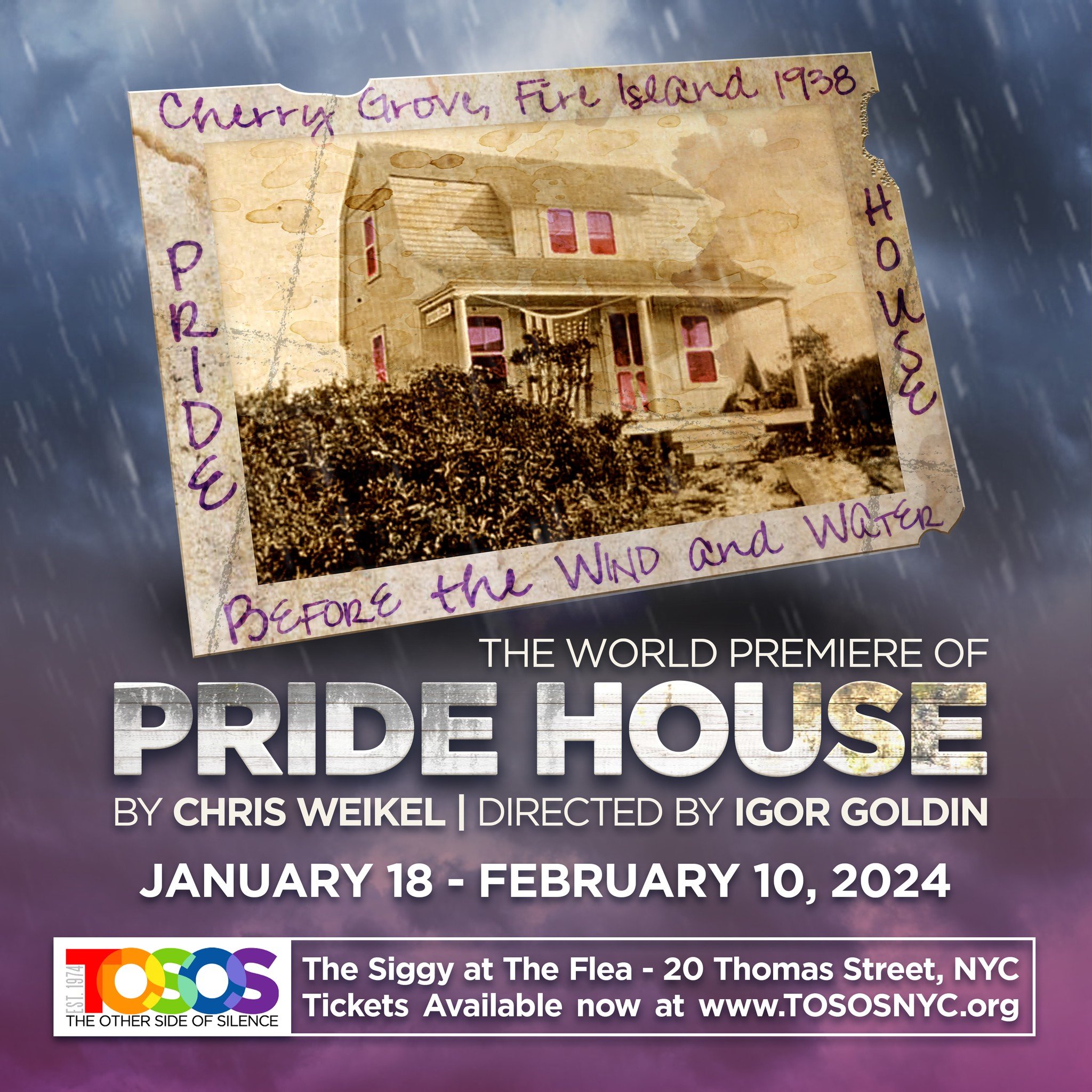
Pride House will be showing though February 10, at Siggy of the Flea, 20 Thomas Street, New York City. For showtimes and ticket information www.TOSOSNYC.org.



